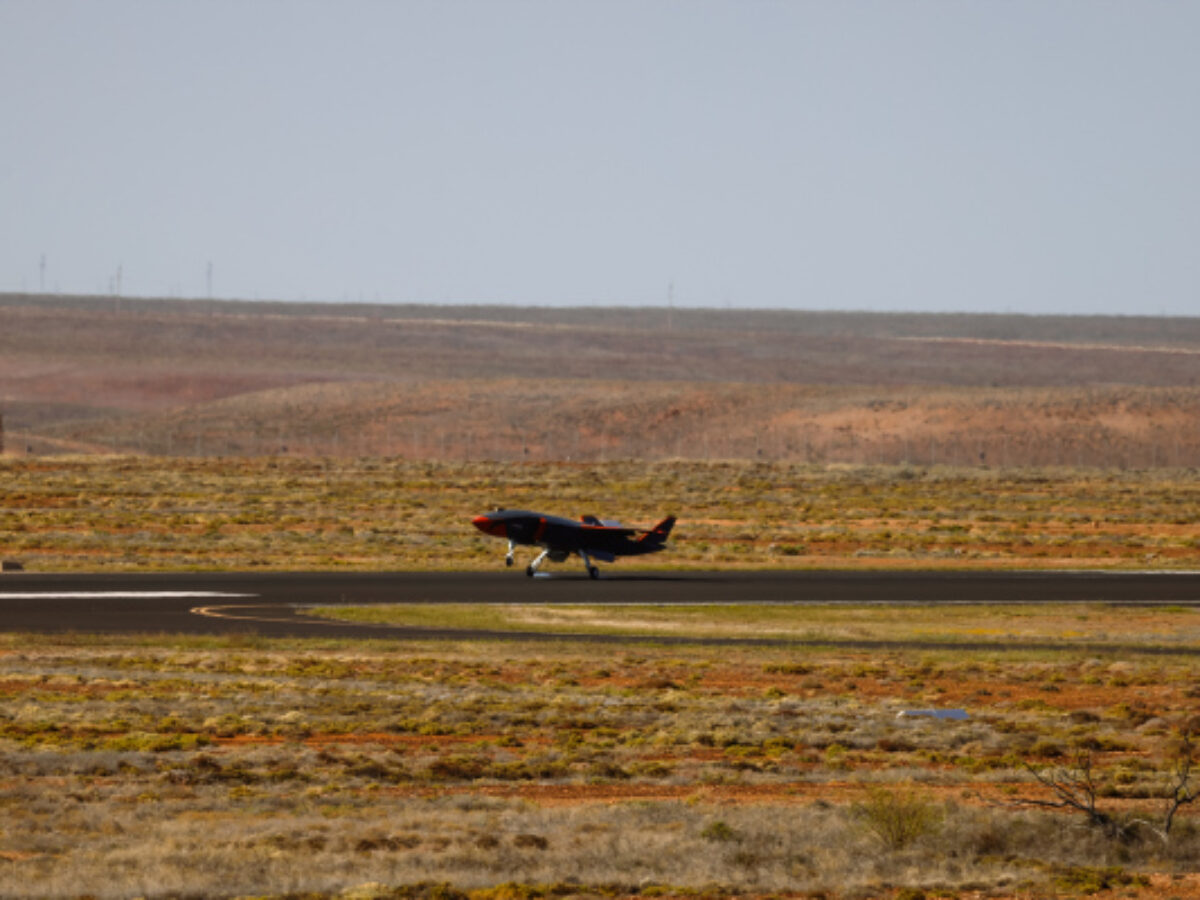Manufacturing news briefs — stories you might have missed

@aumanufacturing Sections
Analysis and Commentary Awards casino reviews Defence Gambling Manufacturing News Online Casino Podcast Technology Videos

Ghost Bat in new milestone
The Australian made and designed autonomous aircraft, MQ-28A Ghost Bat (pictured), has achieved was the federal government has described as a major capability milestone. The first military combat aircraft to be designed, engineered and manufactured in Australia in more than 50 years conducted a capability demonstration at Woomera, involving “a single operator aboard an airborne E-7A Wedgetail taking control of two Ghost Bat aircraft to conduct a mission against an airborne target.” The plane — developed in cooperation with Boeing Defence Australia — is Australia’s first exploration into collaborative combat aircraft technology. Defence industry minister Pat Conroy said on Monday, “This is an important step forward in the development of this world-leading, Australian designed and made autonomous aircraft. The Ghost Bat has the potential to turn a single fighter jet into a fighting team, with advanced sensors that are like hundreds of eyes in the sky.”
Copper SA creates major logistics solution with Aurizon
BHP’s Copper SA business has partnered with Australian company Aurizon on an integrated rail, road, and port logistics solution through four contracts valued at approximately $1.5 billion. It will see transport of copper concentrate and cathode from BHP’s Olympic Dam, Carrapateena, and Prominent Hill mines, as well as other inbound freight, shift to rail between Pimba and Port Adelaide. The shift to an integrated rail, road, and port logistics solution will “effectively replace an estimated 13 million kilometres of truck movements annually – removing more than 11,000 truck movements from South Australian roads per year” according to a statement from BHP on Monday. Anna Wiley, BHP Asset President Copper SA, said, “The shift to more rail transport will improve road safety, lower emissions, create local business opportunities, and deliver significant synergies for our business.”
FBR, Samsung Heavy Industries sign off on automation project
Robotic technology company FBR has announced that it has executed an Engineering Service Agreement with Samsung Heavy Industries (SHI) to deliver the first phase of a shipbuilding automation project. According to a statement on Monday, Phase 1 will see FBR develop and conduct a physical demonstration and validation of a core technology module of a shipbuilding construction robot, and is anticipated to be completed in five months or fewer. After execution of the Engineering Service Agreement, FBR and SHI entered into a 10-year exclusive dealing relationship for the materials to be delivered in Phase 1. FBR will be paid $US150,000 “plus reasonable expenses and any additional fees incurred on a time and materials basis (with pre-approval from SHI) for the delivery of Phase 1 of the Engineering Service Agreement.”
CHEP installs new electric heat pumps
CHEP Australia has announced the installation of a new electric heat pump at its Kenwick Service Centre in Perth. The logistics company said the new addition “displaces natural gas-powered systems, significantly reducing greenhouse gas (GHG) while maintaining operational excellence” and is part of parent company Brambles’ “overarching goal to achieve net-zero GHG emissions by 2040″. The system includes four advanced electric heat pump units — replacing traditional gas boilers — which are powered by renewable electricity. The pumps provide a consistent supply of hot water for washing reusable plastic containers (RPCs), with cool air as the only by-product. “While this is not new technology, we’ve applied it in a way that meets our high operational standards without emissions,” said Jeremy Newman, Lead Engineer on the project.”
Iondrive establishes German subsidiary
Battery recycling technology company Iondrive has finalised its proposed membership and legal framework for a EU consortium and has participated in a joint application to the EU government for grant funding of €3.1 million. As part of these preparations, the company has also established a German entity, Iondrive EU GmbH. The company said in an ASX statement on Monday that its push to commercialise its Deep Eutectic Solvent (DES) technology in the EU commenced in August 2024, with the signing of a collaboration agreement with Production Engineering of E-Mobility Components (PEM) at Aachen University. Iondrive Limited CEO Dr Ebbe Dommisse added, “Establishing a European entity and engaging directly with industry and government stakeholders in the EU reflects the momentum behind Iondrive’s commercial strategy. We’ve built strong relationships across the supply chain — from black mass producers to automotive OEMs — and we’re positioning ourselves to play a critical role in the EU’s battery materials future.”
Picture: credit Darren Clare/Defence